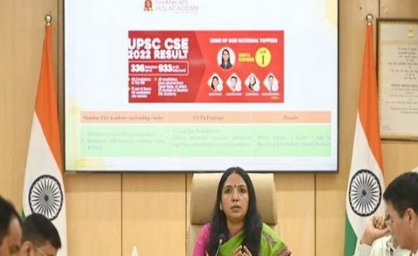New Guidelines for Coaching Sector Advertisements
The Central Consumer Protection Authority (CCPA) has introduced new guidelines to enhance transparency in the coaching sector. These guidelines aim to combat misleading advertisements that often mislead students and parents. The initiative follows an important rise in complaints about deceptive practices by coaching centres.
Purpose of the Guidelines
The guidelines aim to protect consumer rights. They seek to prevent misleading advertisements in the coaching sector. The CCPA intends to ensure that students receive accurate information before making educational decisions.
Coaching refers to academic support, guidance, and tuition. It excludes counseling and creative activities. Coaching Centre is defined as any establishment offering coaching to over 50 students. Endorser refers to public figures promoting coaching services.
Regulation of Advertisements
The guidelines prohibit false claims regarding courses, faculty, and fees. Coaching institutes cannot guarantee admissions or high exam scores. They must avoid misleading representations about their services.
Coaching centres must accurately depict their infrastructure and resources. Misleading claims about service quality are strictly forbidden. This ensures students have a clear understanding of what to expect.
Student Consent for Advertisements
Institutes cannot use students’ names or images in promotions without written consent. Consent must be obtained only after a student achieves success. This reduces pressure on students during the enrolment process.
Transparency and Disclosure
Coaching centres must disclose essential information in advertisements. This includes course details and whether fees were paid by students. Disclaimers must be clearly visible, ensuring consumers are not misled.
No False Urgency
The guidelines target tactics that create a false sense of urgency. Coaching centres cannot imply limited availability to pressure students into quick decisions. This aims to encourage a more informed decision-making process.
National Consumer Helpline Partnership
Every coaching centre must collaborate with the National Consumer Helpline (NCH). This partnership facilitates easier reporting of misleading advertisements and unfair practices. It empowers students to voice their concerns effectively.
The guidelines address unfair contractual practices. Coaching institutes must not impose unfair terms on students. They cannot use testimonials without post-selection consent, alleviating undue pressure on applicants.
Enforcement and Penalties
Violations of these guidelines will be treated seriously under the Consumer Protection Act, 2019. The CCPA holds the authority to impose penalties and enforce compliance. This ensures accountability among coaching centres.
The guidelines are expected to enhance consumer trust in the coaching sector. They provide a framework for transparency and fairness. This initiative aims to protect students from exploitation and misinformation.
Growing Complaints and Resolutions
The NCH has seen a rise in complaints against coaching centres. In 2023-2024, over 16,000 grievances were registered. The NCH has successfully facilitated refunds and resolutions for affected students.
These guidelines represent an important step towards a more regulated coaching industry. They aim to create an environment where students can make informed choices. The CCPA plans to work with stakeholders for effective implementation.
Important Facts for Exams:
- CCPA: The Central Consumer Protection Authority is responsible for safeguarding consumer rights in India. It addresses misleading advertisements and ensures transparency in various sectors including education.
- NCH: The National Consumer Helpline assists consumers in reporting grievances. It serves as an effective mechanism for addressing complaints related to unfair practices in the coaching sector.
- BIS: The Bureau of Indian Standards sets quality standards for products and services in India. It plays a key role in ensuring consumer safety and promoting fair trade practices.
Month: Current Affairs - November, 2024
Category: Legal & Constitution Current Affairs


